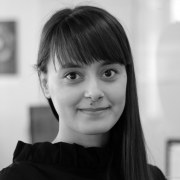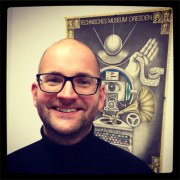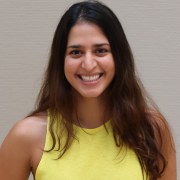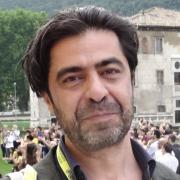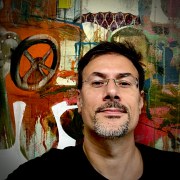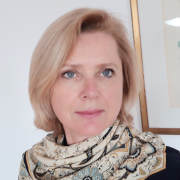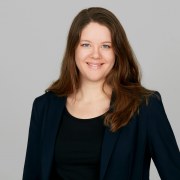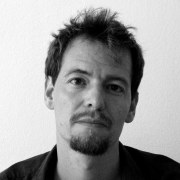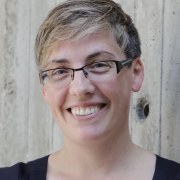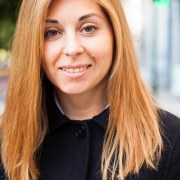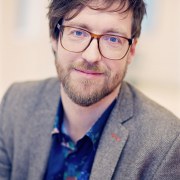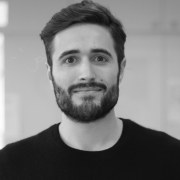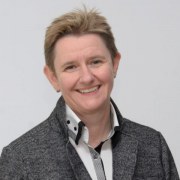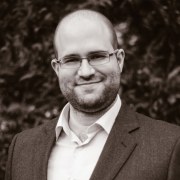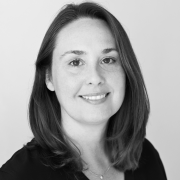Could an object describe your entire project?
The courageous speakers of this session took on this challenge and will be telling you about their projects in an original and jargon-free style.
Expect a 2-minute story for each project, followed by 45 minutes of networking. Join to get a quick overview of ongoing non-profit science engagement actions and meet those behind the showcased collaborative initiatives.
Facilitator
Session speakers
Head of Science Communication
Dresden
Germany
Smart materials are materials with integrated functions that adapt to their environment, for example changing their shape or their electrical conductivity. In the transdisciplinary project “smart materials satellites” the partners tested new formats of science and technology communication with methods of design, artistic research and interactive dialogue formats. In the “forschungswerkstatt smart materials”, an interactive exhibition and workshop space created 2018 in the Technical Collection Dresden, museum visitors and participants of science camps experimented with smart materials, material scientists and designers discussed the future of materials and the perspectives of two resident artists encounter the hidden potential of smart materials.
Researcher & Community Engagement Coordinator
Royal Netherlands Institute of Southeast Asian and Caribbean Studiesl
Leiden
Netherlands
Caribbean Ties - An international consortium of 15 countries has co-created an exhibition on indigenous Caribbean heritage. Caribbean Ties presents the diversity and complexity that existed in the Caribbean before the arrival of European colonizers, and that remains vibrantly present today. The exhibition connects indigenous peoples and present-day communities in the Caribbean. Partners have contributed to the common story that is presented internationally and have adapted it for a locally relevant narrative. The exhibition sheds light on the latest scientific discoveries. Caribbean Ties opens in 2019 in 15 museums across the Caribbean and Europe.
Concept & Experience Designer
Thessaloniki
Greece
Virtual Diver - Development of an integrated interactive platform providing virtual underwater experiences for the culture and tourism industries. The project is developing an integrated interactive platform for exploring natural and virtual environments in areas of touristic and environmental interest, such as those possessing unique geomorphological structures, shipwrecks, sunken harbors and cities or marine parks, in order to enrich underwater travel experiences for the culture and tourism industries. It is strategically targeting Santorini as one of the most touristic destinations in the world. Its unique geomorphological scenery, the particular settlement development as well as the geological history and evolution of the Santorini volcano will all be themes in the interactive narrative of the platform.
Director
Torino
Italy
DEMOSOFC, the unexpected energy - The DEMOSOFC plant will be the first industrial-size Solid Oxide Fuel Cell (SOFC) installation fed by biogas in Europe. The site of the installation is a municipal Waste Water Treatment Plant (WWTP) located in Collegno (Turin, IT) where biogas is produced from the sludge, a by-product of the water treatment process. Citizens have been engaged through dissemination activities, and the success of the dissemination programme has shown that lay public stakeholders want to be involved with state-of-the-art technology if it provides solutions to environmental issues.
Director
Technical Museum of Slovenia
Ljubljana
Slovenia
ICYDK – In Case You Didn’t Know – was a one-year project supported by the EU Intellectual Property Office and implemented by the Technical Museum of Slovenia in cooperation with the Slovene Press Agency, the Office for intellectual property of Slovenia and Jožef Stefan Institute. Its main goal was to improve the understanding of the role and value of intellectual property in our daily lives among the younger generations. It touched on key issues such as the illegal downloading of films, their consequences and positive effects of proper intellectual usage. Its exhibition – When an Idea Becomes Property, Peter Flojancic and Intellectual Property – and the accompanying programme ‘Knowledge without Frontiers’, as well as several educational online activities and social media actions reached many schools and institutions and generated a lot of public attention.
Project & Communications Manager
Stockholm
Sweden
Science Shops – a win-win model for research organisations and civil society. Science Shops bring civil society organisations and researchers together to co-create knowledge to find solutions to real-life societal problems, and are a proven model to achieve this. SciShops is an EU-funded Horizon 2020 project testing new Science Shop models and developing tools and resources to support those interested in setting up Science Shops and community-based participatory research initiatives. Ten new Science Shops are being set up as part of the project by a range of different research organisations, including research institutes, NGOs, universities and companies.
CEO
Berlin
Germany
The International Day of Mathematics (IDM) is an international yearly event celebrated through unaffiliated local events all over the world organized by mathematical organizations, educators, museums, communicators, etc. The International Mathematical Union is leading this project and UNESCO is considering to proclaim the IDM to be an official UNESCO Day. The first IDM celebration is expected to be on March 14, 2020. We will present how such an international non-profit collaborative project to engage the large public to mathematics is being planned: a dedicated communication strategy and identity, a web platform and open source content for localised exhibitions and events.
Membership and Office Manager
Ecsite
EU-Citizen.Science - A lot of citizen science initiatives are currently taking place but there is no real synergy between these individual projects. The aim of EU-Citizen.Science is to mainstream this field of innovation by creating a mutual learning space for very diverse stakeholders, ranging from citizen scientists to researchers, teachers, entrepreneurs, etc. Over the next few months, the platform for sharing, initiating, and learning citizen science will be created to enable citizen scientists to come together and share their expertise. By mapping and coordinating citizen science actions, this project will support new and existing citizen science initiatives, while contributing to the creation of a European citizen science community. It will share good tools, trainings and best practice examples and will enable newcomers to the field as well as experts to find all the main scientific outcomes collected by citizen scientists in this platform dedicated to citizen science. The project is currently collecting feedback on the needs this European platform should meet, so this session will be a valuable opportunity to hear from you, the science engagement community.
Professor of Multisensory Experiences
University of Sussex
Brighton
United Kingdom
Feeling Human in a Digital World - Interactive technologies such as Virtual and Augmented Reality (VR/AR) are transforming the ways in which people experience, interact and share information. Advances in technology have made it possible to generate real and virtual environments with breath-taking graphics and high-fidelity audio. However, without stimulating the other senses such as touch and smell, and even taste in some cases, such experiences feel hollow and fictitious; they lack realism. Within my ERC SenseX project, we focused on the investigation of touch, taste, and smell as interaction modalities for interactive technologies. While we aim to guide the development of future technologies we tackle fundamental questions such as how do we experience the world around us?, What makes us human?, How did technology change our interaction with our surrounding?, and How can we make us feel human again in a digital world - especially exploiting our sense of smell?
Co-founder
Stickydot
Brussels
Belgium
Little is known about science learning initiatives outside the classroom while it is crucial in educating and forming Europe’s next generation of researchers and innovators. SySTEM 2020 is trying to get a better understanding of the field by mapping initiatives that encourage learning beyond the classroom across 19 countries. Within 8 of these, in-depth studies will be carried out to look at how children and teenagers between the ages of 9-20 years old react to these types of environments. By including learners from minority, economically disadvantaged and migrant communities, this project will not only look at the organisations, but also the individual learner themselves. Through SySTEM 2020’s research-practice approach, new tools will be created and tested to support educators in designing and implementing flexible learning environments that depend on the learner, location and subject.
Associate Professor Science Communication & Public Engagement
Amsterdam
Netherlands
RETHINK: Science communication is at a pivotal stage in its evolution due to the emergence of digital communication platforms that are not only presenting new opportunities but are also leading to new challenges. RETHINK will provide an unprecedented view of the new science communication landscape to reveal the barriers and inequalities that stand in the way of open and reflexive connections between science and society. It will also present the way forward, encouraging evidence-based transformations in science communication practice as well as guiding relevant policy to further open Research & Innovation (R&I) to society.
Project Manager
Ecsite
Co-creation is a buzz word that has been used widely across Responsible Research and Innovation and Science Technology and Innovation Policies, but do we really know what it means and, more importantly, what it entails? SISCODE is trying to address this by stimulating the use of co-creation methodologies in policy design. By analysing 40 cases of co-creation ecosystems across Europe, SISCODE will be able to pinpoint favourable conditions that supports its scalability and replication, ensuring its use is understood and utilised widely with policy-makers in the future.
Project Manager
Vienna
Austria
PISEA aims at making informal science learning and science engagement more inclusive and relevant for marginalised adults, particularly for those groups of migrants and refugees, who face economic, social, educational, cultural or language barriers and discrimination. It addresses science communicators and educators as well as management and other staff and provides resources such as guidelines and sharing of good practice, trainings and events. The project also directly addresses marginalized refugee and migrant groups as adult learners in piloting a number of science engagement activities.
Postdoctoral research fellow
Politecnico di Milano
Milan
Italy
COMPASS - Very much like a vessel surfing the seas, a spacecraft travelling through space is subjected to many different perturbations. The gravity of other celestial bodies, solar radiation pressure, or the atmosphere or a nearby planet have a sometimes subtle but always essential effect on its orbit. COMPASS (Control for Orbit Manoeuvring through Perturbations for Application to Space Systems) aims to understand all these effects to leverage, rather than oppose, them for new approaches to space mission design. After all, each time you set sail, you need a reliable compass.
Research Professor
Tempe
United States
Sustainability in Science and Technology Museums - This program supports museums in their efforts to expand their sustainability programming through content-rich trainings, public educational materials, and other resources to promote sustainability science and practice. By leveraging the power of museums around the world, this program has the potential to help millions of museum visitors understand the social, environmental and economic impact of human behavior on the planet’s future. By 2020, the program will activate a network of 200 major museums in all 50 states of the US and 33 countries around the world. The project is led by Arizona State University along with multiple partners of the National Informal STEM Education Network in the United States.
Project & Communications Manager
Stockholm
Sweden
SciShops is a EU-funded Horizon 2020 project that is developing new Science Shops across Europe. VA (Public & Science) is one of 18 European partners in this three-year project, which started in September 2017. Science Shops are a model of community-based research that facilitates research and knowledge transfer with and for society.
https://v-a.se/english-portal/projects/scishops/

